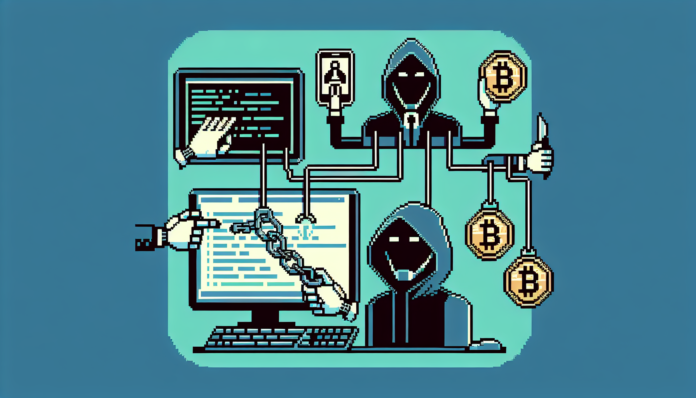- Europol warns that blockchain and AI technologies are increasingly facilitating serious organized crime beyond cybercrime into areas like drug trafficking and human smuggling.
- AI enables criminals to automate attacks, create convincing deepfakes, and optimize malicious operations with fewer resources while reaching more victims.
- TRM Labs identifies three primary criminal applications of AI: automating phishing campaigns, creating synthetic media for fraud, and enhancing cybercrime operations through advanced data analysis.
European law enforcement officials have raised alarm about the growing convergence of blockchain technology and Artificial Intelligence in criminal enterprises. According to Europol’s latest threat assessment, this technological combination is rapidly accelerating serious and organized crime operations, with the agency warning that fully autonomous AI systems could eventually lead to "entirely AI-controlled criminal networks."
The 2025 Serious and Organised Crime Threat Assessment highlights how cryptocurrencies and AI are transforming criminal operations, particularly in online fraud schemes which Europol identifies as "the most rapidly expanding sector" in organized crime.
"Narratives are extremely realistic, crafted with the help of AI, and incorporating trending societal topics," the report states, noting that "Cryptocurrency features prominently as a payment method."
The assessment reveals that cryptocurrency utilization in criminal activities has expanded beyond traditional cybercrime contexts. Digital assets are increasingly employed in "traditional" criminal sectors including drug trafficking, migrant smuggling, cyberattacks, sanctions evasion, and human trafficking operations.
Perhaps most concerning is the report’s conclusion that artificial intelligence is dramatically enhancing criminal efficiency through automation. "From automating phishing campaigns to executing large-scale cyber-attacks, AI enables criminals to achieve more – reach more victims, be more targeted in their approach, and expand their global reach – with fewer resources," the authors explain.
These findings align with research from blockchain intelligence firm TRM Labs, which released a report in January documenting how malicious actors "are increasingly leveraging AI to carry out hacks and conduct fraud."
Isabella Chase, Head of Policy for EMEA at TRM Labs, identified three primary ways criminals are currently deploying AI technologies:
First, AI enables the automation of attacks, particularly phishing campaigns that can generate convincing messages at scale. Second, criminals create deepfakes and synthetic media to enhance fraud operations. "Criminals use AI to build convincing deepfakes or to embellish existing stolen identities to dupe victims," Chase explained, adding that "This is increasingly important for business compromise, which is the most profitable form of online fraud."
Third, AI provides enhanced analytical support for cybercriminals. "AI algorithms optimize Ransomware operations by identifying the most critical data or systems to encrypt for maximum leverage […] AI also allows Malware to adapt dynamically to evade real-time detection," Chase detailed.
While TRM Labs anticipates more criminals will adopt AI "in the coming years" for targeting victims and laundering funds, Chase offered a balanced perspective, suggesting that law enforcement and private sector entities will simultaneously develop advanced AI tools to better identify criminal activities.
The integration of AI with cryptocurrency transactions presents a dual challenge for regulatory authorities attempting to combat financial crime while respecting privacy and innovation within the blockchain ecosystem.
✅ Follow BITNEWSBOT on Telegram, Facebook, LinkedIn, X.com, and Google News for instant updates.
Previous Articles:
- Fed Leaves Rates Unchanged, Warns of Increased Economic Uncertainty
- Cardano’s Social Sentiment Hits 4-Month High Despite Lagging Transaction Volume
- Swiss National Bank Explores Private Tokenized Currency Backed by Central Bank Funds
- Analyst Warns XRP Could Fall to $1.25 if $2 Support Level Breaks
- Cardano Development Report: 1.3 Million Delegated Wallets and $1.5M Investment from Hoskinson Family Office

